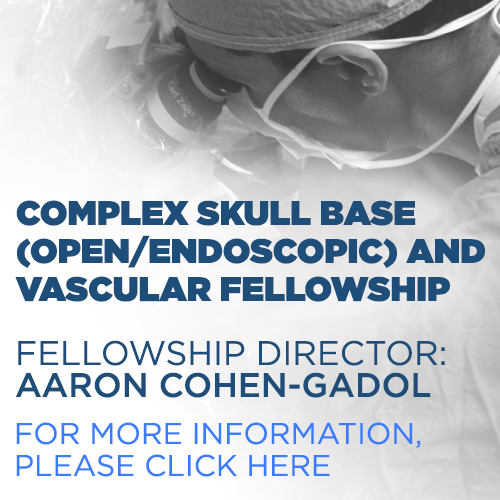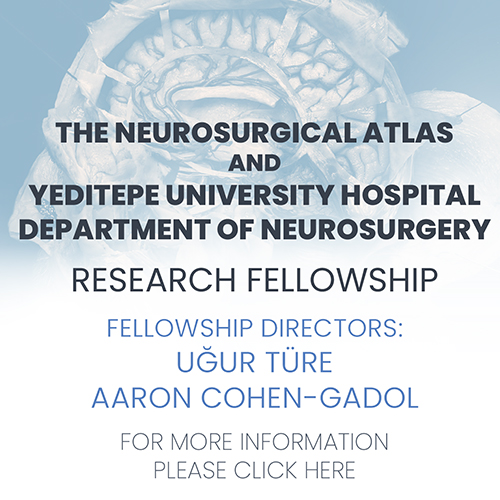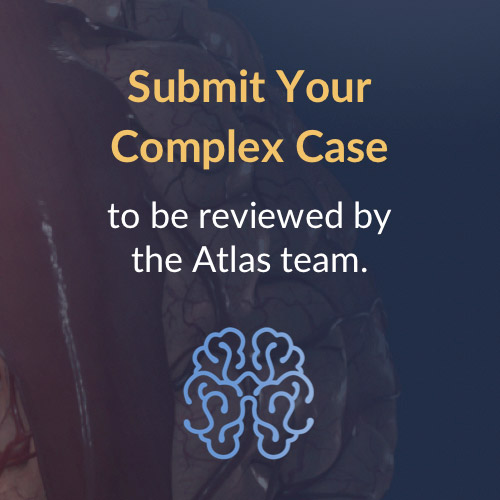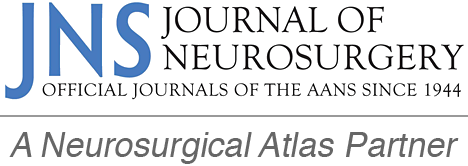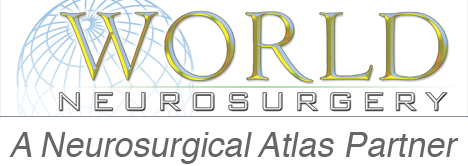Fellowship Training
Table of Contents: Fellowship Training
Enfolded vs. Post Residency Fellowships
- Academic Acceptance
- Post residency and enfolded fellowships provide additional training for residency graduates who may take the role of an attending and participate in call.
- Enfolded fellowships are typically performed in the resident’s own institution senior years of training, typically during the PGY-5 and PGY-6 years.
- The opportunity for an enfolded fellowship in an outside institution varies and is dependent upon funding opportunities and the establishment of a rotation agreement between both participating institutions.
- Outside Institution Fellowships – Participation in an enfolded fellowship at an outside institution requires permission from the ABNS. The ABNS in turn, may require that the resident maintain a log of all procedures performed at the outside institution as well as a written report of their experience upon completion.
- Procedures performed in an outside institution do not count for residency graduation requirement.
- In order to participate in an enfolded fellowship, both institutions may have to form a rotation agreement which requires approval by administrators and their respective legal teams. This may take several months in addition to the time required to obtain a state license (for institutions in different states).
- The applicant or outside hospital program may have to find funding for enfolded fellowships. The participating institution may require the resident’s home institution to continue to cover the resident’ malpractice insurance. These requirements are negotiated and vary between institutional legal teams.
- Post residency fellowships are likely to have a higher academic acceptance and some employment opportunities may require a post residency fellowship.
- The applicant should also understand that performing a fellowship without completion of their chief year may place them in a situation in which other post residency fellows have more advanced surgical skills.
CAST Certification vs. Non-CAST Fellowships
- CAST - “The Committee on Advanced Subspecialty Training (CAST) functions under and is responsible to the Council of The Society of Neurological Surgeons. CAST is responsible for accreditation of subspecialty training fellowships and subspecialty certification of fellows in neurosurgery and for development and updating of subspecialty training requirements.” Source
- Many fellowships may not be CAST approved.
- How to find out about available fellowship programs
- A list of CAST fellowships is available here
- Other sources include the AANS website
- For other less advertised fellowships, it is wise to email programs directly or interact with senior attendings at meetings for available opportunities.
- Alternate Specialty Fellowships– A complete listing of North American Neurosurgical Fellowships is available from the AANS here.
- Spine Fellowships –
- SF Match - Access to orthopedic spine fellowships for neurosurgery residents is attainable through the SF Match, This program is sponsored by the North American Spine Society and takes place in March for all applicants who wish to commence fellowship training in August of the following year. Registration fee is $100. For detailed information visit here.
- An alternative option is the CAST approved spine fellowship. Currently (as of 7/25/2017), enfolded spine fellowships are not eligible for CAST approval. A complete listing is available here.
- Competing With Other Specialties – Specialties other than neurosurgery are eligible for fellowship positions in overlapping fields such as neuroendovascular and spinal surgery. With regard to spine surgery information, the SF match is available to both neurosurgery and orthopedic surgery residents and is detailed above. For neuroendovascular surgery, neurologist and neuroradiologits may be eligible for CAST approved fellowships.
- Combined Fellowships
- The North American Skull Base Society provides a Skull Base Fellowship Registry. A complete listing of skull base programs is available here.
- The Joint Cerebrovascular Section of the AANS / CNS provides a listing of combined open cerebrovascular and endovascular fellowships. A complete listing of these combined programs is available here.
- Spine Fellowships –
Please login to post a comment.

